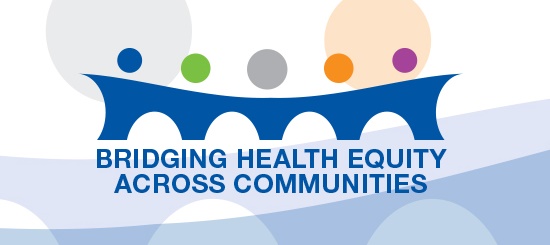April is designated as National Minority Health Month by the U.S. Department of Health and Human Services, and we join HHS in working to raise awareness about the health challenges, disparities, and resiliencies faced by communities of color, LGBT communities, and American Indian/Alaska Native communities around the country — especially as they relate to aging. All this month, we’ll be highlighting new research, reports, and stories from our communities around health and healthcare.

The theme for this year’s National Minority Health Month is “Bridging Health Equality Across Communities,” which could not be more perfect for the Diverse Elders Coalition, an organization founded to identify the common threads and strengthen the collective voice of elders across multiple underserved communities. In our recent report, “Aging with Health and Dignity,” we received comments from thousands of diverse older adults about their aging needs. Despite differences in age, geography, race, ethnicity, sexual orientation, and gender identity, diverse elders across the country expressed a shared need for culturally and linguistically competent services, affordable housing, and disaggregated data collection. We urge policymakers, providers and advocates to honor diverse elder voices as they are crafting legislation, designing aging programming, or delivering services in their communities.
Unfortunately, in recent weeks we have seen actions from our country’s leadership that undermine — not improve — health equity for diverse older adults. Questions about sexual orientation were removed from the National Survey of Older Americans Act Participants — a survey used to determine how to direct billions of taxpayer dollars toward older people’s needs through publicly funded senior centers, meal deliveries, family caregiver support, transportation, and more. LGBT-focused questions were also removed from the 2020 Census. And discussion continues in Congress about repealing and replacing the ACA, an essential program that has drastically improved access to healthcare for diverse communities.
Promoting health equity means speaking out against these changes. The Southeast Asia Resource Action Center is collecting stories about how the ACA (aka Obamacare) has helped you or your family. You can fill that out here. And another of our member organizations, Services and Advocacy for GLBT Elders (SAGE), has a comment card you can submit to oppose the removal of LGBT older adults from the National Survey of Older Americans Act Participants. That comment card can be found here. Please take five minutes to share your thoughts and help us continue to promote health equity in our communities!
We’ll be celebrating National Minority Health Month in other ways, too. Keep your eyes on this blog, as well as our Facebook and Twitter pages, for more NMHM news and events! To read the HHS Office of Minority Health’s announcement about National Minority Health Month, click here. (Also available in Spanish.)
The opinions expressed in this article are those of the author and do not necessarily reflect those of the Diverse Elders Coalition.

